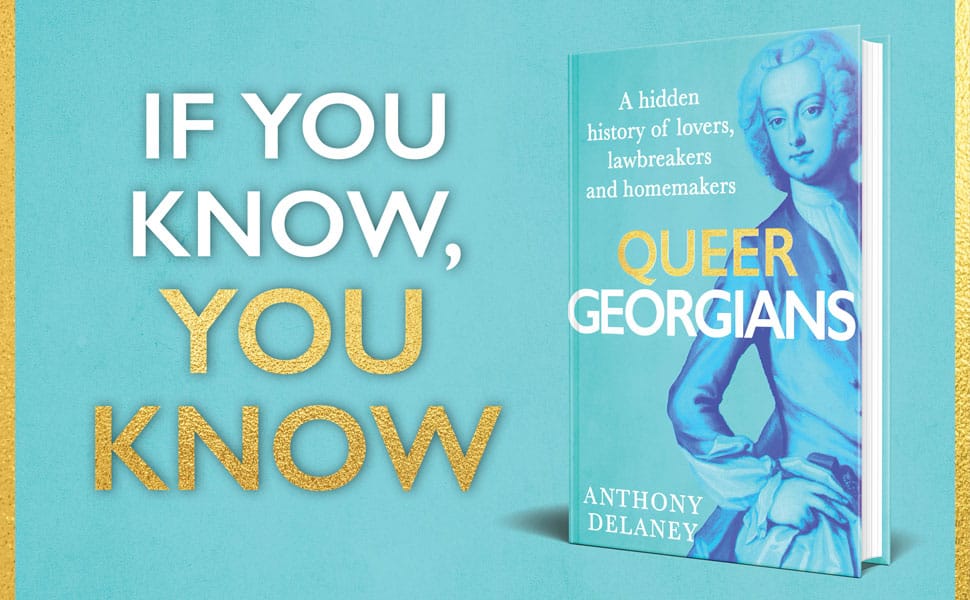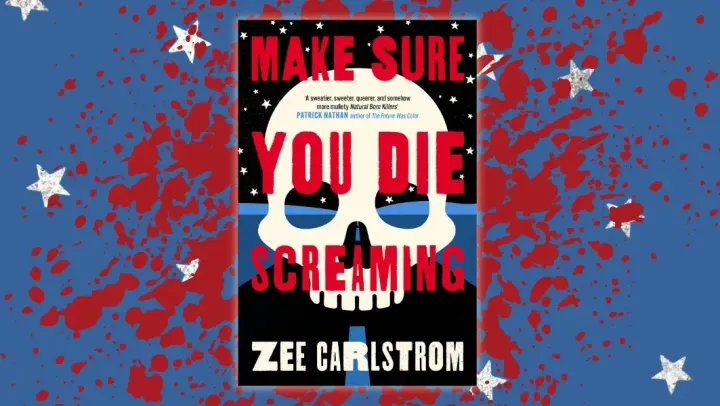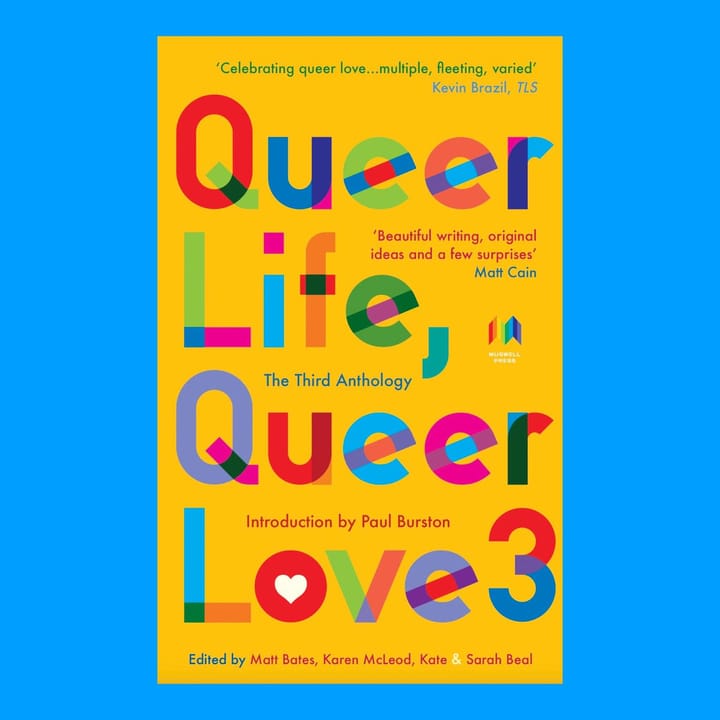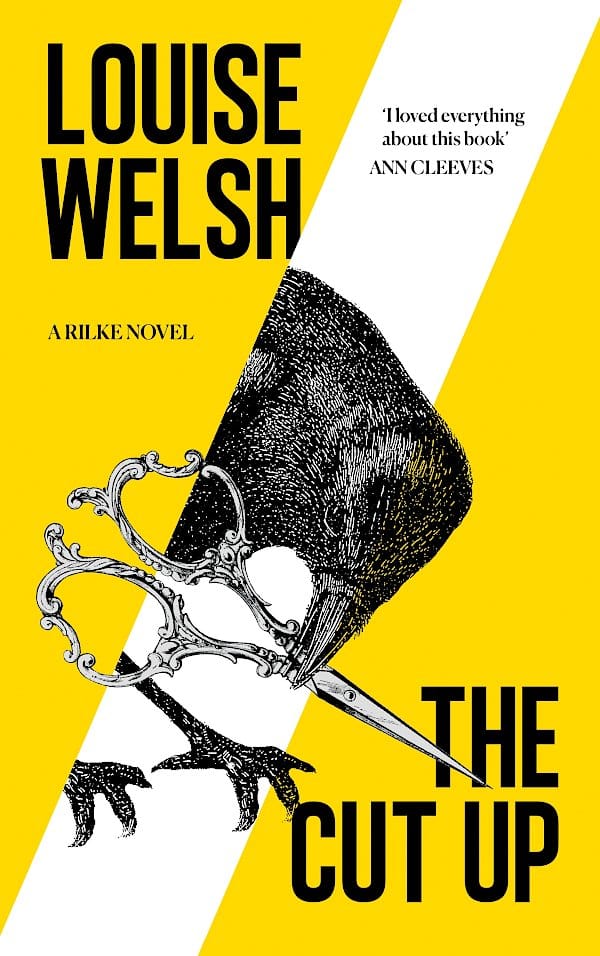Queer Georgians: A Hidden History of Lovers, Lawbreakers and Homemakers By Dr Anthony Delaney ★★★★★
Queer Georgians is both deeply serious scholarship and a celebration of queer resilience. It takes the mythic sheen off our ancestors while making them infinitely more precious—as recognisably queer people who loved, struggled, thrived, and endured. unmistakably queer.

Darling readers, prepare to have your powdered wigs properly ruffled. Dr Anthony Delaney's Queer Georgians arrives like a perfectly timed fan snap across the face of sanitised queer history, and honestly? We needed the wake-up call.
With a PhD in history from the University of Exeter and the vocal stylings that have made the History Hit podcast After Dark such a delicious guilty pleasure, Delaney brings both rigorous academic credentials and a gift for storytelling to his debut book. And what a debut it is.
This isn't your grandmother's cosy queer history book—though she'd probably love it once she got over the shock. Delaney wields his research like a particularly unforgiving searchlight, stripping away layers of diaphanous hearsay and wishful thinking that have accumulated around our Georgian queer ancestors like so much historical rouge. The result? Some of our most cherished heroes and heroines emerge looking rather more threadbare than comfort might prefer, but gloriously, authentically human for it.

What Delaney achieves here is forensic brilliance. He doesn't just examine the famous queers we think we know—he dissects the very historical documents that recorded them, drawing out fascinating and genuinely empowering conclusions about the stubborn permeance of queer people and relationships throughout the last three centuries. It's detective work of the highest order, served with the kind of scholarly rigour that makes you want to clutch your pearls and applaud simultaneously.
The author's exploration of language and law in the context of people finding ways to explore same-sex relations and lasting relationships is particularly illuminating. His introduction of the term "heteroregulation" hands us a powerful lexicological weapon—finally, a phrase that captures what so-called "straight" expectations really are: regulative moral controls over how people should act, love, and establish homes. It's the kind of academic terminology that makes you feel both intellectually armed and slightly vindicated.

Here's where Delaney's work sparkles: in its unflinching commitment to context and cultural relevance. He doesn't parade our Georgian queers about like exotic museum pieces. He injects them with the vital understanding of the communities they created among themselves—the networks of support, the coded communications, the domestic arrangements that sustained them. We begin to see the privilege and profound importance of queer community, even when it had to exist in shadows and speak in whispers.
Some of our more "glamorous" queer ancestors lose a bit of their BBC/Netflix sheen under Delaney's analytical gaze. That romanticised notion of the dashing Gentleman Jack or the mysterious molly gets complicated by messy realities of class, poverty, violence, and survival. But this isn't historical iconoclasm for its own sake—it's scholarship that honours these people by seeing them fully, in all their complex humanity.

The joy of this book—and there is genuine joy here, beneath all the serious historical excavation—lies in its fundamental message: We have always been here. In all our glories, in all our queernesses, in all our stubborn, creative, life-affirming persistence. The Georgians weren't just making do or surviving in the margins; they were creating culture, establishing relationships, building lives that mattered.
Delaney's Queer Georgians manages to be both deeply serious scholarship and a celebration of queer resilience. It takes the mythic sheen off our ancestors while making them infinitely more precious—not as distant, untouchable icons, but as recognisably queer people who loved, struggled, thrived, and endured. Still gloriously Georgian. Still unmistakably queer. Still magnificently, defiantly here.
A triumph of queer historiography that belongs on every thinking queer's bookshelf—right next to the smelling salts you'll need after some of Delaney's more revelatory moments.
Available now from the publishers and all good bookshops—and probably some deliciously scandalous ones too.
Support independent LGBTQ+ journalism
Scene was founded in Brighton in 1993, at a time when news stories about Pride protests were considered radical. Since then, Scene has remained proudly independent, building a platform for queer voices. Every subscription helps us to report on the stories that matter to LGBTQ+ people across the UK and beyond.
Your support funds our journalists and contributes to Pride Community Foundation’s grant-making and policy work.
Subscribe today




Comments ()